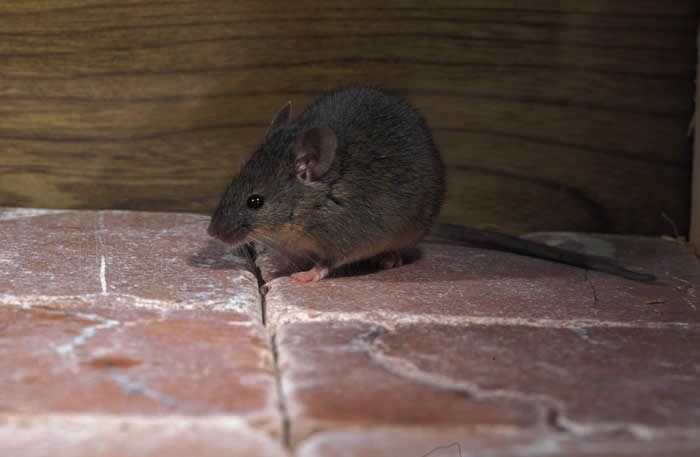Many people mistakenly believe that the mice that take up residence in their homes are looking for shelter from the cold months of winter, and will vacate the premises in the spring. Unfortunately, as the weather grows warmer, you may still find that you have unwanted guests in your home.
Let’s take a moment to sort out facts from fiction. It is true that, as the weather grows colder in the fall, mice often look for shelter in human habitations. It is also true that in the spring when the weather grows warmer, mice tend to spend more time outdoors. However, it is not necessarily true that the mice will move out permanently in the spring. Having found a place where they are safe, warm, and well-fed, they are likely to keep returning to your home after their outdoor excursions.
Why Mice Stay in Your Home
Your home offers a number of essentials to the mice’s existence that they often have a harder time finding outdoors.
Food
From the cupboards to the counters, mice can often find an abundance of food in your home. Not only that, but it often requires minimal effort on their part to get it. If you do not clean up crumbs and spills on your counter, it is as though you are leaving out a whole buffet for them.
Water
All animals need freshwater to survive. If you have leaky pipes or faucets, the mice have a readily available source of water to drink.
Shelter
Mice do not only seek shelter from the cold. Your home also offers them protection from the predators that prey on them out of doors, such as feral cats, owls, hawks, and snakes.
Nesting Materials
Female mice can give birth to five to 10 litters per year. Not only does your home protect the vulnerable offspring from predators, but it is also full of soft materials that the mice can chew up and turn into warm bedding for their growing families.
Look at it from the mouse’s point of view: If you found a place to live in which you were safe and all your needs were provided for, would you be keen to leave? Chances are that you wouldn’t, and neither are the mice.
How You Can Get Mice To Leave
Mice do not make good houseguests. They can do serious property damage to your home and expose you and your family to disease. However, the little freeloaders may be more inclined to leave if you limit their access to the benefits of living in your home.
For example, you can cut off the mice’s food supply by keeping your kitchen clean and storing food in sealed containers. Take steps to securely store not only your own food but your pets’ food as well. Do not leave food for your dog or cat out at all times. Rather, designate specific meal times during which your pet will be fed. This not only helps to control your problems with mice, but it is also healthier for your dog or cat.
You should also make any necessary plumbing repairs to cut off the water supply. Inspect the pipes in hidden areas of your home to check for leaks that are less obvious. Be sure to fix any leaky faucets as well.
How To Know if You Have Mice
Mice are very sneaky, but they frequently leave behind clues of their presence in the form of droppings. You often find these in storage areas in the kitchen, such as cabinets and drawers. You may also hear them moving about in your ceilings and walls, especially at night.
However, if you are still not sure, you may wish to consult the professionals at Skedaddle Humane Wildlife Control. One of our technicians can assess the situation and recommend a humane pest removal solution that is beneficial for both you and the mice.



